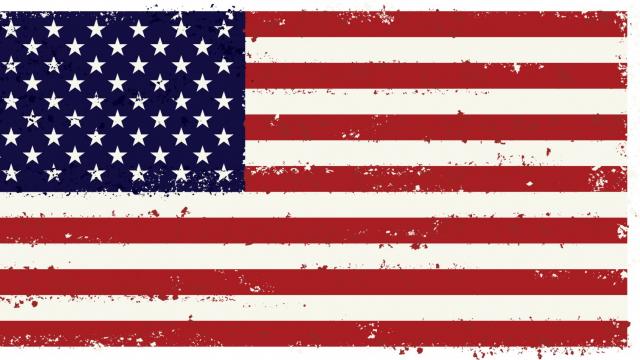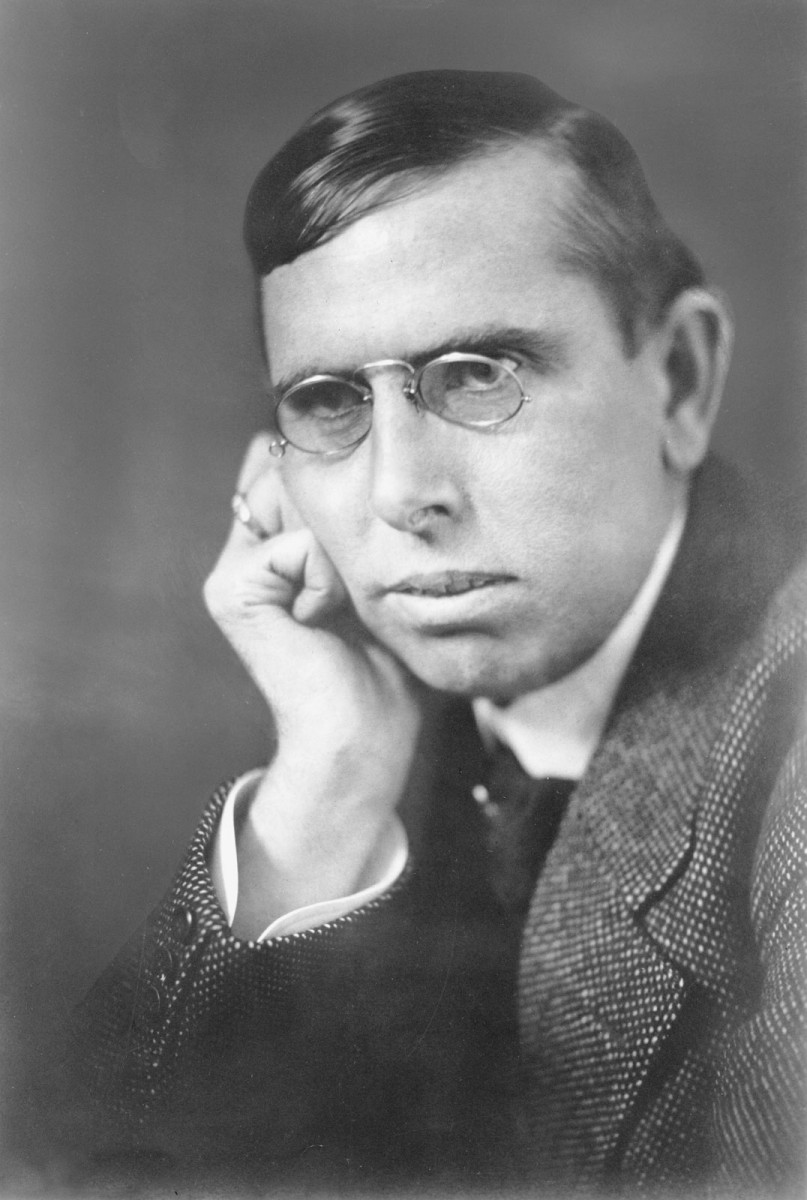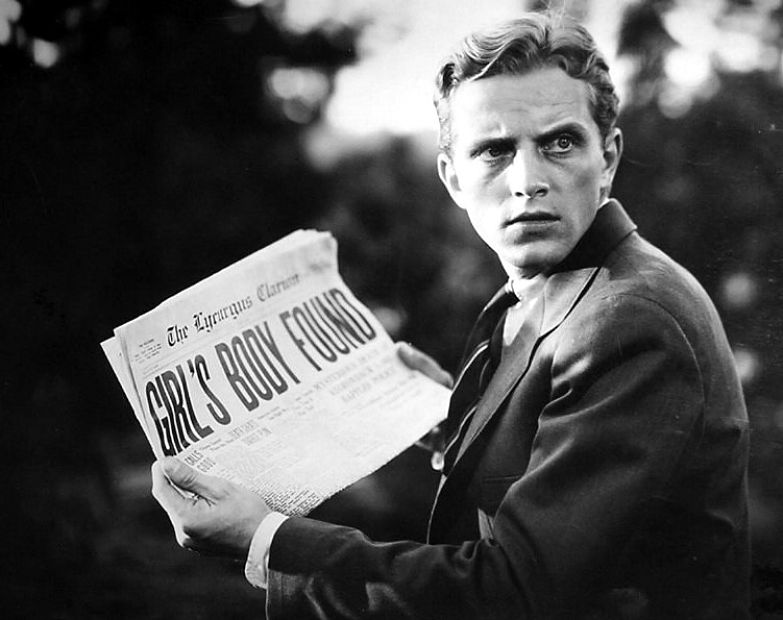
“But this system—which the capitalists would have us believe to be the work of sheer fate—is actually no more and no less than the absolutely planned and executed method by which the banks bring on a state of prosperity for only 1% of the people...."
Quick, identify the source and the year for this quote. Is it A.) Joseph Stiglitz writing in 2003 B.) Noam Chomsky in 1987 C.) Occupy Wall Street in 2011, three years after the financial collapse of 2008 Or D.) Theodore Dreiser in 1931, three years after the Crash of 1929?
The correct answer is D—for Dreiser: the man whose scandalous debut novel Sister Carrie paved the way for the likes of Bright Lights, Big City and Sex and the City. The man whose fiction was admired by such powerful critics and novelists as Sherwood Anderson, Irving Howe, Alfred Kazin and H.L. Mencken. And not least, the man who was narrowly beaten for the Nobel Prize in Literature by Sinclair Lewis in 1930.Unlike his fiction, however, Dreiser’s political prose is less well known today. Two works which deserve to be rescued from the dustbins of history are his Tragic America (1932)—not to be confused with his novel, An American Tragedy (1925), and America is Worth Saving(1941).
There are several reasons for our lack of familiarity, beginning with the fact that Tragic America was almost immediately banned from bookstores and libraries—including a Carnegie Library in Pennsylvania, which went so far as to burn all of his texts. In turn, America is Worth Saving was critically dismissed with few reviews.
Finally, there’s the uneasy issue of Dreiser’s Communist affiliations. Although Dreiser—like W.E.B. Dubois, Ernest Hemingway, Langston Hughes, Sinclair Lewis, Upton Sinclair, Thomas Wolfe and Richard Wright—belonged to the Communist-sponsored League of American Writers, he eventually gained admission to the Party itself shortly before his death in 1945.
As these texts explore the flip side of his novels, so to speak—namely, how the aims, ambition and avarice of the 1% destroy the livelihoods of the 99—they also offer us insights into our own Great Recession. So on our 237th Fourth of July, let’s revisit Tragic America and America is Worth Saving: works which riled capitalists and communists alike, with the former regarding Dreiser as “red” and the latter dismissing him as a “conspicuously wrong” bourgeois liberal.
For 50 years between the passing of the Gilded Age v. 1.0 and our present Gilded Age v. 2.0, Dreiser’s words not only resonate in curious ways, but also inspire a new assessment of our American democracy.
Like Occupy Wall Street, Dreiser recognized that the system was rigged in favor of the wealthiest 1—and that the latter never hesitated to take advantage of it. “I satisfy myself,” as the eponymous protagonist of his novel, The Financier(1912), bluntly proclaims. Capitalist abuse was all about “individualism armed with capital and corporate power and laws run mad.” (Take heed, Ayn Rand admirers!)The rich not only had “a billion loose to add to their 14 billion invested abroad,” while dividends, “the income of the rich,” increased by 350 million just as “wages of the poor decreased by 700 million.” Today, those billions invested abroad are now in the trillions while numbers of the impoverished are growing at the fastest clip since the Depression.
And not unlike F. Scott Fitzgerald’s apt description of the careless Buchanans who smash up things and let other people clean up the mess, Dreiser’s 1% also destroy others without much ado. There was something profoundly wrong when the average Bethlehem factory worker made $30 a week in 1929—roughly $400 today—while executives raked in $3 million ($40 million today) in bonuses. Really, American presidents are only “rubber stamps or pushers for corporation activities!” For just as “A Morgan and a Rockefeller need a Calvin Coolidge and a Herbert Hoover to go though the supposedly democratic ceremonial of approval of their deeds,” banks in 2008 needed a George W. Bush and Barack Obama to push through a $1.2 trillion bailout.
Likewise, if “government action which the financial lords want is encouraged and usually brought about aided by the efforts of government officials like Andrew Mellon,” Secretary of the Treasury in 1931, this was no less true in 2008 when Henry Paulson, former CEO of Goldman Sachs, served as one of the primary architects of the bailout. Plus ca change.
The Standard Oil (grandparent of Amoco, Chevron, ExxonMobil, and others), U.S. Steel, not to mention the “great railroads, banks and service corporations” were all collectively guilty of “taxing and robbing and underpaying the very Government and people which originally....permitted them their selfish and now wolfish rise.” The same stands today as the Government Accountability Office recently disclosed the gross underpayment of taxes by corporations: many pay a mere third (12.6%) of the standard 35%.
But it wasn’t just federal governments helping the bigwigs—it was local governments too. Recalling a remark made by a Wall Street lawyer in 1907, Dreiser explains how corporations have played a role in increasing police power for their own benefits—as opposed to labor interests. Hence, the growth of the private detective system, state police, and the commissioning of the government of police hired and directed by the corporations. So perhaps there may be a certain grain of truth in the allegations that Goldman Sachs hired the police to attack Occupiers in 2011, after all?
Nor did the advantages end there. Dreiser was quick to point out the unsavory connections between academe and the corporate world. Whatever pretensions to high-minded ideals, the former was already at the beck and call of the latter since university trustees were frequently drawn from industry anyway. Instead, what was less acceptable was the ready willingness of faculty members to line their pockets by writing seemingly objective textbook that supported a given corporation—for instance, a textbook on public utilities slanted in favor the National Electric Association. It’s a practice that is still intact in the hallowed halls of our ivory towers, some 80 years later—as we’ve seen in the all too cozy relationship between business schools, banks, and the Fed recently noted by Charles H. Ferguson in Inside Job and Predator Nation.
And of course, there was the press. Newspaper editors were “busy making the laborer’s lot seem not only much less wretched than it is, but really as though it possessed phases of comfort and even well-being.” They were all too apt to turn bad news into good news, practicing “an insidious form of lying” as they “pull layer after layer of wool over the public’s eyes”: for instance, barely mentioning that most added jobs at factories are only part time or pay less than previously. Again, much the same persists years later, with a vast swathe of news media articulating neoconservative and neoliberal views: whether it’s Fox News branding any Democratic president “a traitor,” a New York Times gushing over the deregulation and the need for war in Iraq, or any news media ridiculing the Occupy movement.
On the other hand, there was the “90-95 percent of the citizens” who “trudge in comparative want.” Just like in pre-revolutionary Russia, “the employers, for their own personal gain and even ruthless greed, not only wish to but do hold the worker to a mean state of existence.” Although Dreiser was already a wealthy man by 1931, he had experienced and witnessed poverty himself: first, as a boy growing up in an all but broken family, then as a sweeper and heavy lifter in 1903 earning 15 cents an hour, and finally, as an investigator of the Harlan county coal miners’ grievances in 1931. It was a shame indeed when workers had their meager wages reduced by 10%. And to add insult to injury, many were violently attacked and even killed when they attempted a strike. (Needless to say, the judges generally sided with the corporations.)
But even more appalling was the gaping lack of union protection. In contrast to Germany and England where 75% and 65% of their labor force were unionized, only 10% in America enjoyed that privilege. It is noteworthy that only 13% of workers are unionized today—and that many wish there were more. Not least, there was no employee insurance for those working in hazardous industries, for instance, those forced to breathe asbestos dust when operating machinery. Although this problem has largely disappeared today, it nonetheless finds a parallel in our shrinking health benefits and pensions.
Even worse off was the older worker faced with fewer prospects for employment. If cursed with “gray hairs,” the “average” man, according to Dreiser, was all too “liable to discharge at any moment and remain so.” Nor have things changed much in 2013 as those 45-60 face greater hurdles in landing a new job than 25 to 34-year-olds. Indeed, the unhappy fate of George Hurstwood, the flawed hero of Sister Carrie, looms before our very eyes as growing numbers of single, middle-aged men resort to suicide after failing to find work.And as far as any purported advantages for the 99% go, could any sane person possibly believe 1% claims about the wonders of stock distribution to their employees—or benefits from generous charitable contributions? Stock distribution for workers, as Dreiser saw it, was a virtual sham since most stocks were either limited in number or non-voting; “the controlling stock ownership,” of course, was almost always “held under the management of the oligarchy.” It was to that “1% and that 1% alone,” who enjoyed 99% of wealth from stocks: a fact that remains true today as upper management, the board of directors, and large shareholders easily retain the bulk of rights and wealth. The idea of charitable donations was even more ludicrous since only a sliver of contributions—say, to the Red Cross—ever reached the intended recipients. Again, as in corporations, it was the president and his cronies who derived most of the benefits, many of whom were also drawn from large corporations.
America of 1931, in short, was anything but a land of “equal opportunity”: rather, it was all about “unlimited license for the cunning and the greedy who take advantage of that equal opportunity to establish special, or in other words, unlimited individual privileges, and the power that goes with the same.” It is a “predator nation” (to apply the words of Charles Ferguson), not unlike that of the lobster devouring a squid as witnessed by Frank Cowperwood of The Financier, conveying a sense of just how “things lived on each other.”
Are we to be that hapless squid? No—not if we wake up and take appropriate actions. For instance, as Dreiser suggests, we can practice government ownership such as did the good people of Portland, Maine who established a coal and wood yard as a permanent business after being fed up with high prices due to monopoly and delays from private dealers. It’s a concept that is resurfacing as recently reported by Thomas Linzey. It remains as true as ever that not just “one but all our corporations are closing in on the people,” demanding “more and ever money.”
It is time for Americans to be “radically American”: a term that Dreiser used to describe himself. It’s time to realize that “a new system is needed” in America: ”Not Communism or Socialism, necessarily, but something similar and suited to the American temperament” for “The present conditions are not inevitable or necessary, as capitalists would have the worker believe.” And as such, it’s time for all of us to take Dreiser’s words from Tragic America—caps and all—to heart:
WE WANT A GOVT FOR ALL THE PEOPLE!
NO ENORMOUS WEALTH IN PRIVATE HANDS!
WE WANT EFFICIENT MANAGERS FOR THE BENEFIT OF ALL AMERICANS!
Frances A. Chiu is writing a book on Thomas Paine’s Rights of Man for Routledge. A graduate of Oxford University, she teaches literature and history at The New School.
3 WAYS TO SHOW YOUR SUPPORT
- Log in to post comments
















